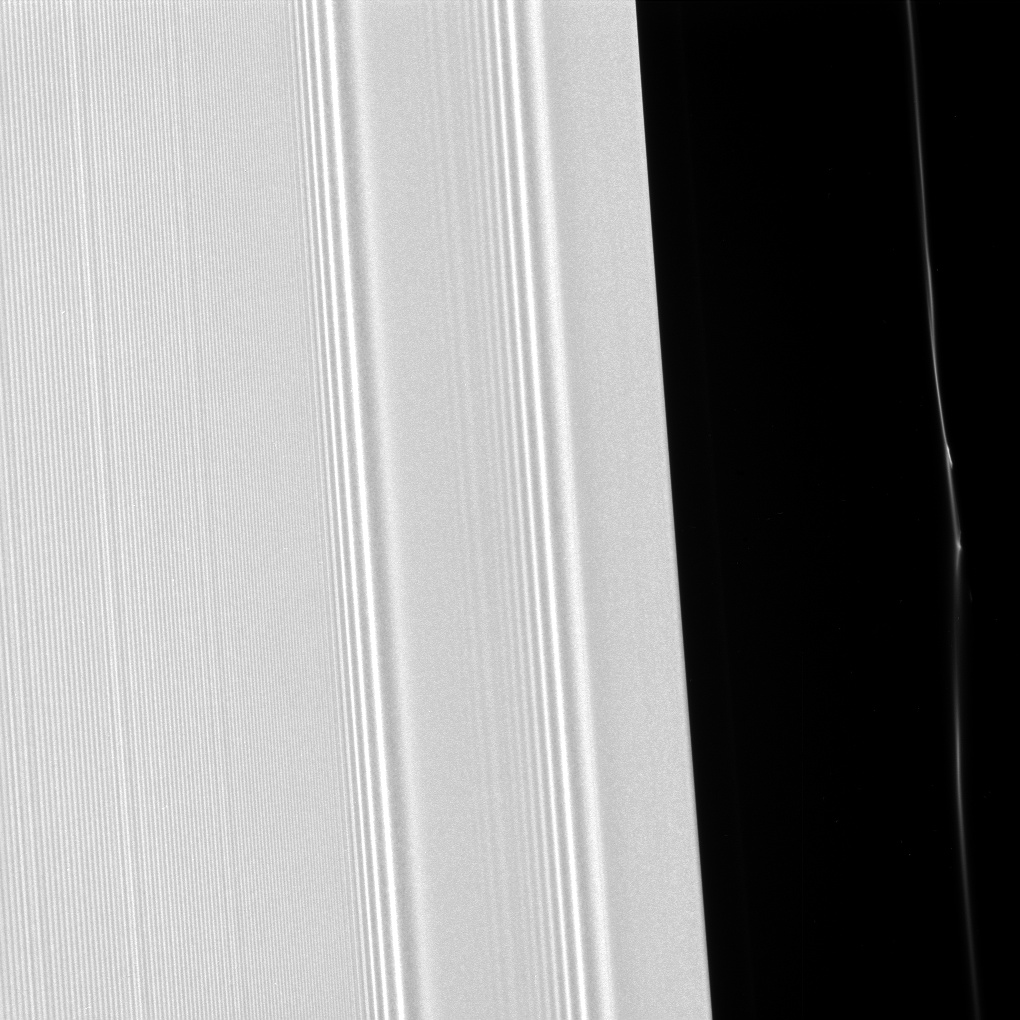Grooves and Kinks in the Rings

| Credit | NASA/JPL-Caltech/Space Science Institute Updated at 11:15 on June 26, 2017, to correct features that had been misidentified. |
|---|---|
| PIA Number | PIA21333 |
| Language |
|
Many of the features seen in Saturn's rings are shaped by the planet's moons. This view from NASA's Cassini spacecraft shows two different effects of moons that cause waves in the A ring and kinks in a faint ringlet.
The view captures the outer edge of the 200-mile-wide (320-kilometer-wide) Encke Gap, in the outer portion of Saturn's A ring. This is the same region seen in Earthart's Propeller in Saturn's A Ring. Also visible here is one of several kinked and clumpy ringlets found within the gap (see Clumpy Ringlets).
Kinks and clumps in the Encke ringlet move about, and even appear and disappear, in part due to the gravitational effects of Pan — which orbits in the gap and whose gravitational influence holds it open. The A ring, which takes up most of the image on the left side, displays wave features caused by Pan, as well as the moons Pandora and Prometheus, which orbit a bit farther from Saturn on both sides of the planet's F ring.
This view was taken in visible light with the Cassini spacecraft narrow-angle camera on March 22, 2017, and looks toward the sunlit side of the rings from about 22 degrees above the ring plane. The view was acquired at a distance of approximately 63,000 miles (101,000 kilometers) from Saturn and at a phase angle (the angle between the sun, the rings and the spacecraft) of 59 degrees. Image scale is 1,979 feet (603 meters) per pixel.
The Cassini mission is a cooperative project of NASA, ESA (the European Space Agency) and the Italian Space Agency. The Jet Propulsion Laboratory, a division of the California Institute of Technology in Pasadena, manages the mission for NASA's Science Mission Directorate, Washington. The Cassini orbiter and its two onboard cameras were designed, developed and assembled at JPL. The imaging operations center is based at the Space Science Institute in Boulder, Colorado.
For more information about the Cassini-Huygens mission visit http://saturn.jpl.nasa.gov and http://www.nasa.gov/cassini. The Cassini imaging team homepage is at http://ciclops.org.
